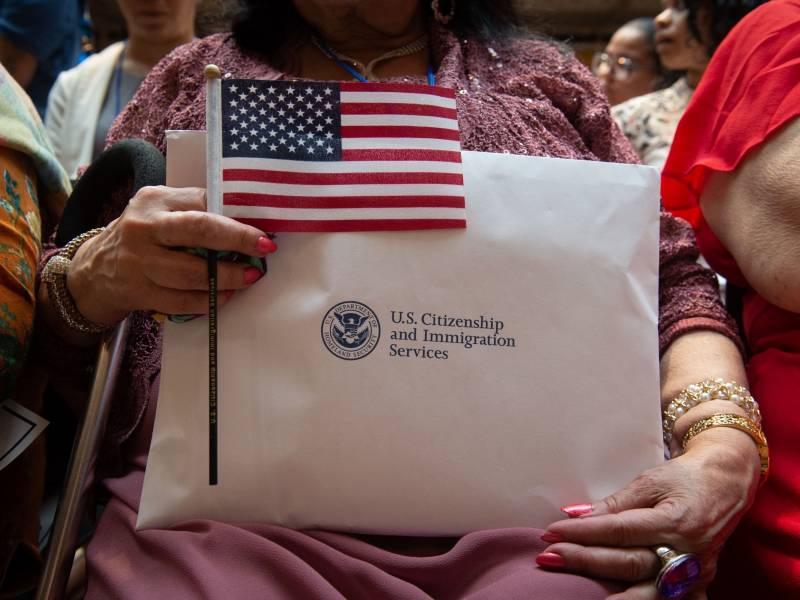The data DHS provides “will not be used to make programmatic or administrative enforcement decisions,” according to the document the department released last week.
Instead, the document says DHS is providing the records as required by Trump’s executive order to help determine numbers of three specific groups: “citizens, lawfully present non-citizens, and unauthorized immigrants in the United States during the decennial census.”
While Trump’s order does reference a need for a “more reliable” count of unauthorized immigrants to better inform public policy about immigration and eligibility for public benefits, the Census Bureau has not publicly acknowledged any plans to create such an estimate.
During public meetings in September, the Census Bureau’s chief scientist, John Abowd, confirmed that the executive order — along with a filing to the White House’s Office of Management and Budget, which reviews all federal government efforts to collect information — “commit” the bureau to releasing citizenship data by the end of March 2021, in time for the next round of redistricting.
The bureau’s public information office has not responded to NPR’s questions about whether it’s planning to produce a count of unauthorized immigrants in response to the executive order.
The bureau is currently fighting off a lawsuit by the state of Alabama and Rep. Mo Brooks, a Republican from that state, which is arguing in court to get unauthorized immigrants excluded from census numbers used to determine the distribution of congressional seats among the states.
Both the bureau and the Department of Homeland Security’s office of public affairs have also not responded to NPR’s questions about when the new data-sharing agreement was signed and if any data have been transferred yet.
Plans for DHS to share data with the bureau through this agreement have been in negotiations since early 2018, when the bureau officials began scrambling to respond to the Trump administration’s last-minute request to add a citizenship question to the 2020 census.
Census Bureau officials have long advocated for the administration to rely on existing government records as a way to produce citizenship information that the bureau’s researchers say is more accurate and less expensive than collecting self-reported responses to a census question. In 2018, Commerce Secretary Wilbur Ross, who oversees the Census Bureau, approved both adding the question to census forms and directed the bureau to request records from other agencies and state governments.
Still, the DHS document lays out a number of risks involved with sharing data with the bureau, including a concern that doing so is “not compatible with the original purpose” of DHS agencies collecting the information. It also flags the risk that the people whose information DHS is sharing with the Census Bureau may not want that to occur.
The document says, however, these risks “cannot be mitigated” and that Trump’s executive order requires DHS to comply with the bureau’s data requests.
Some privacy advocates have raised their own concerns about the potential misuse of data, especially at a time of increased immigration enforcement. Using the information to try to identify noncitizens “implicates fundamental due process rights and will impact both citizens and non-citizens,” wrote Marc Rotenberg, president of the Electronic Privacy Information Center, in a July letter to leaders of the House Oversight and Reform Committee.
On top of those concerns, it’s not clear exactly how accurate the data produced using the existing records will be. The DHS document acknowledges it is “notoriously difficult” to use data to determine a person’s current immigration status because “individuals can have multiple immigration statuses through their lifetime.”
“Because DHS is providing information at a point in time,” the document says, “it is reasonable to believe that eventually data accuracy issues may arise.”

9(MDAxOTAwOTE4MDEyMTkxMDAzNjczZDljZA004))
